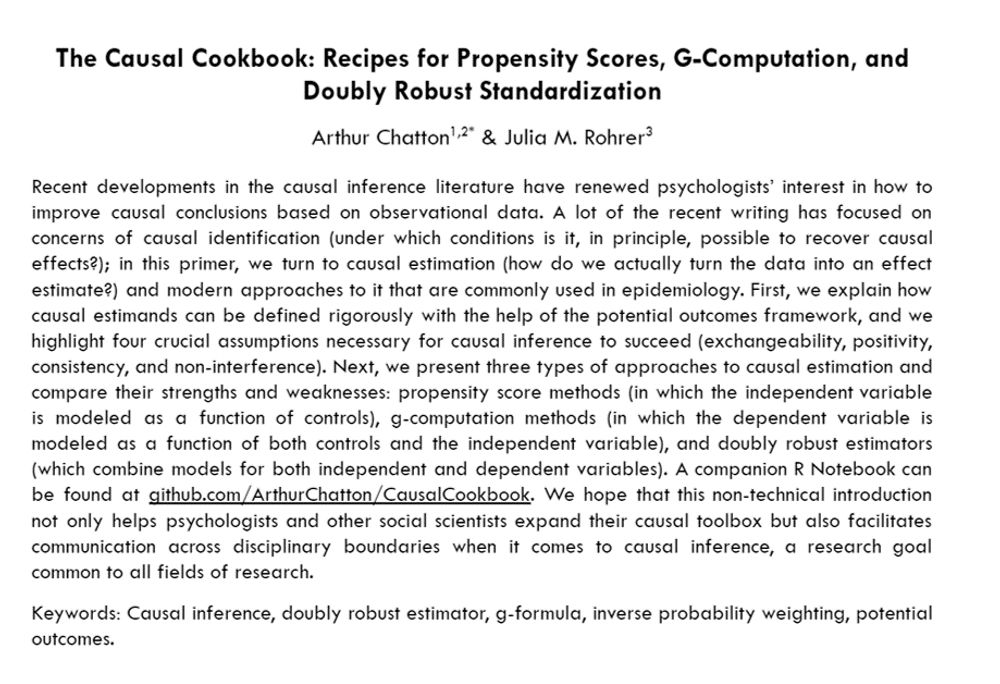"The Causal Cookbook: Recipes for Propensity Scores, G-Computation, and Doubly Robust Standardization
Abstract:
Recent developments in the causal inference literature have renewed psychologists’ interest in how to improve causal conclusions based on observational data. A lot of the recent writing has focused on concerns of causal identification (under which conditions is it, in principle, possible to recover causal effects?); in this primer, we turn to causal estimation (how do we actually turn the data into an effect estimate?) and modern approaches to it that are commonly used in epidemiology. First, we explain how causal estimands can be defined rigorously with the help of the potential outcomes framework, and we highlight four crucial assumptions necessary for causal inference to succeed (exchangeability, positivity, consistency, and non-interference). Next, we present three types of approaches to causal estimation and compare their strengths and weaknesses..."
